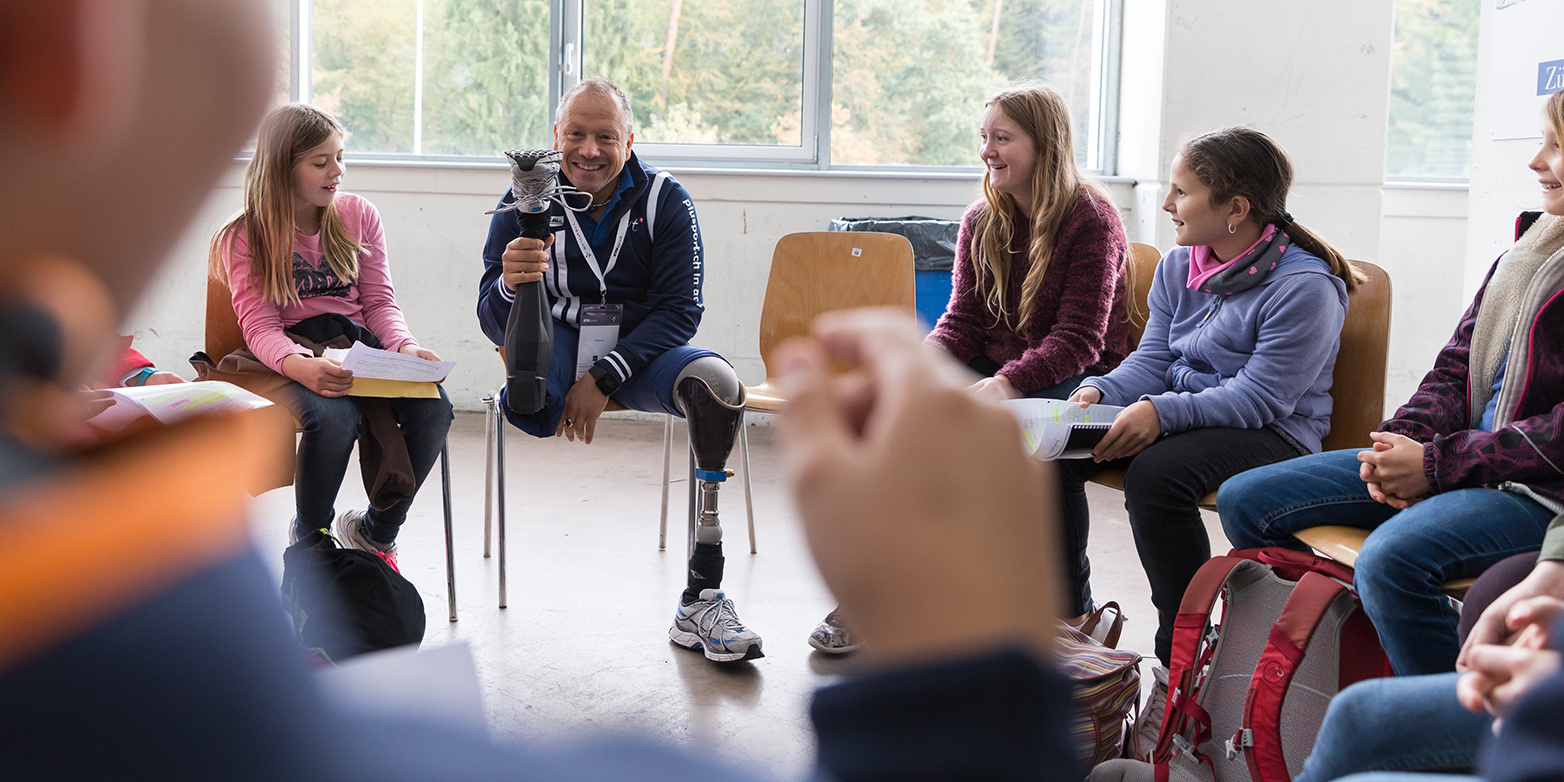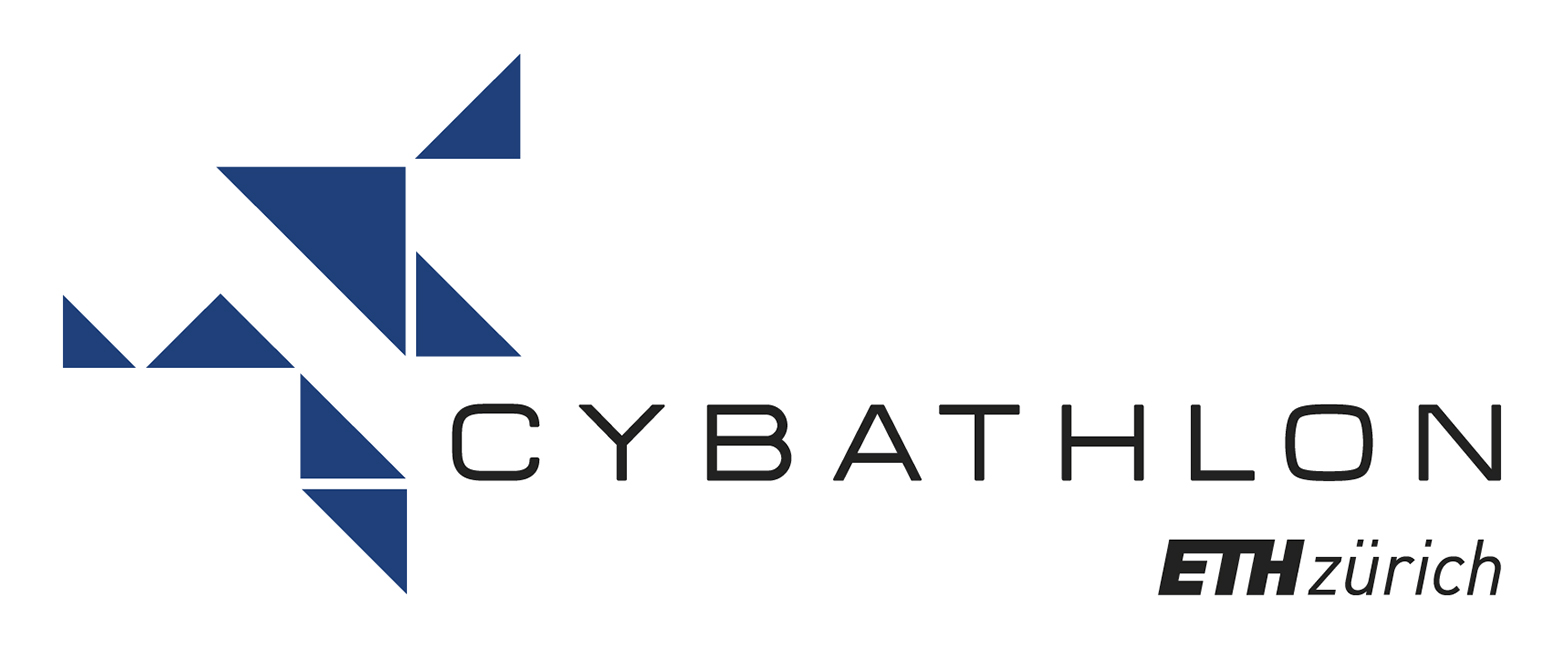How technology brings people together
Promoting the inclusion of people with disabilities calls for open dialogue with them. Robert Riener says that talking about technology helps to break the ice.

Children often behave in a carefree way, with honesty and enthusiasm. This is apparent, for example, when they meet people with a hearing aid or a prosthetic arm, or someone in a wheelchair. Children are often curious or intrigued, they are interested in wearable technologies and the physical disability and they’re not in the least bit shy about talking to the person.
Although this complete openness can sometimes be upsetting for those with a disability, in many cases they take the children’s genuine interest well, as people with a disability have told me. Moreover, it demonstrates a willingness to overcome the barriers that supposedly exist between people with and without disabilities.

It’s mainly children under the age of ten who are so open about these things. The older that children and adolescents get, the more they lose this trait and the more reserved they become. Once they reach adulthood, their openness often gives way to a reluctance to engage. People who have never been around someone with a disability before can find such an encounter particularly unnerving. They avoid or ignore the person more or less unconsciously, which amounts to limited participation in society.
That’s why it should be our aim to encourage such encounters – especially during childhood and in schools, but also later on in life – by making time and providing opportunities for people with and without disabilities to come together. This helps to build trust and raise awareness that our society is diverse and made up of very different people. Just as not everyone is good at football or mathematics, it shouldn’t be an issue if someone has only one arm or uses a wheelchair. We should treat the fact that we humans are different as perfectly normal.
Visiting school classes
But how can we take this topic into schools and get children interested without boring them or, worse, forcing them do something that they are perhaps reticent about or they don’t want to do? Technology and robotics might have a key role to play here if they are used as a way to talk about physical disabilities.
That’s what we do in the CYBATHLON @school programme. Together with our partners, we developed various teaching modules in which a person with a disability teams up with an ETH coach to visit school classes and let the pupils experience the challenges that people with disabilities face in everyday life. Then, by way of specific examples, the children and young people experience for themselves how technology can benefit people with disabilities. The aim of getting the young people to interact with the person with a disability is to prompt them to think about how to break down barriers or how to develop tools that can help people with disabilities participate fully in society – in other words, with independence and self-determination.
"Technology and robotics might have a key role to play here if they are used as a way to talk about physical disabilities."Robert Riener
In modules for sports and biology lessons, many hundreds of children and teenagers have already discovered first-hand what it’s like to walk with a leg prosthesis or tackle an obstacle course in a wheelchair, and they’ve learned more about how the human musculoskeletal system works and how its function can be impaired. Further modules in maths, computing, handcrafts and ethics are being developed.
Being able to fully participate in society
Children get excited about technology, robotics, medicine and future topics. Relating this knowledge to disability or, even better still, getting people with disabilities themselves to teach it builds a lasting awareness of the needs of these people. It’s a way to initiate dialogue, to talk directly about disability, but also to indirectly show that a person with a disability is absolutely “normal” – or even that they have other spectacular abilities or knowledge that are both surprising and fascinating. This breaks down any reluctance to engage with people with disabilities and helps to create understanding for them, so they can fully participate in our diverse society.
CYBATHLON 2020

CYBATHLON is a championship in which people with physical disabilities compete against each other to complete everyday tasks using state-of-the-art technical assistance systems. The first CYBATHLON took place in Zurich in 2016. CYBATHLON 2020 will be held on 2 and 3 May 2020 - again in the Swiss Arena.
Further information and advance ticket sales at cybathlon.ethz.ch
On 29 and 30 November 2019, CYBATHLON Experience will be a guest at the Swiss Handicap fair in Lucerne.
Comments
No comments yet